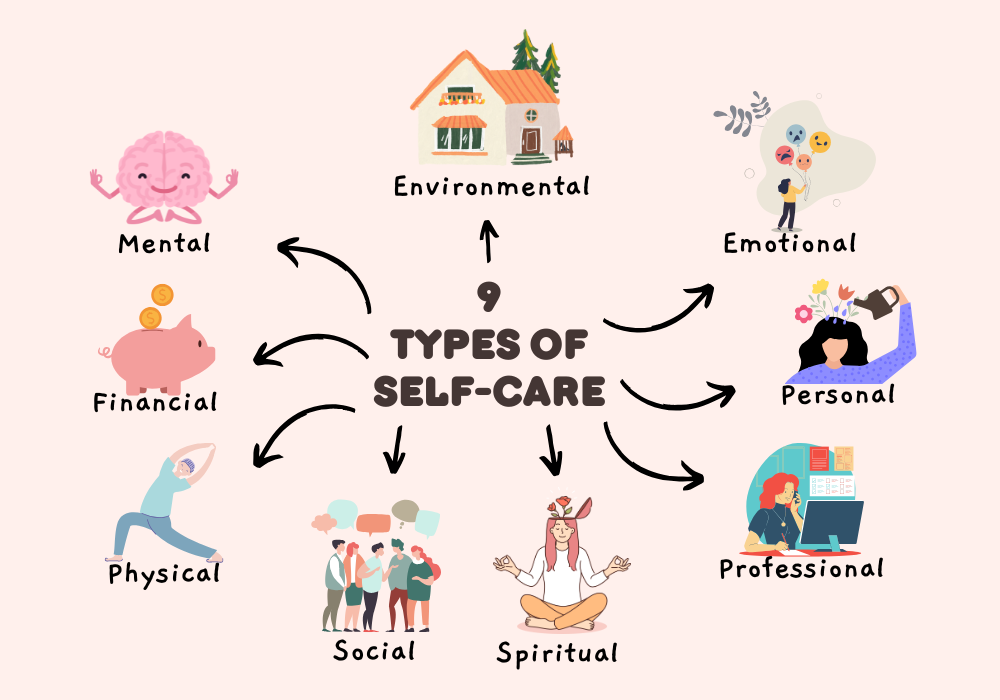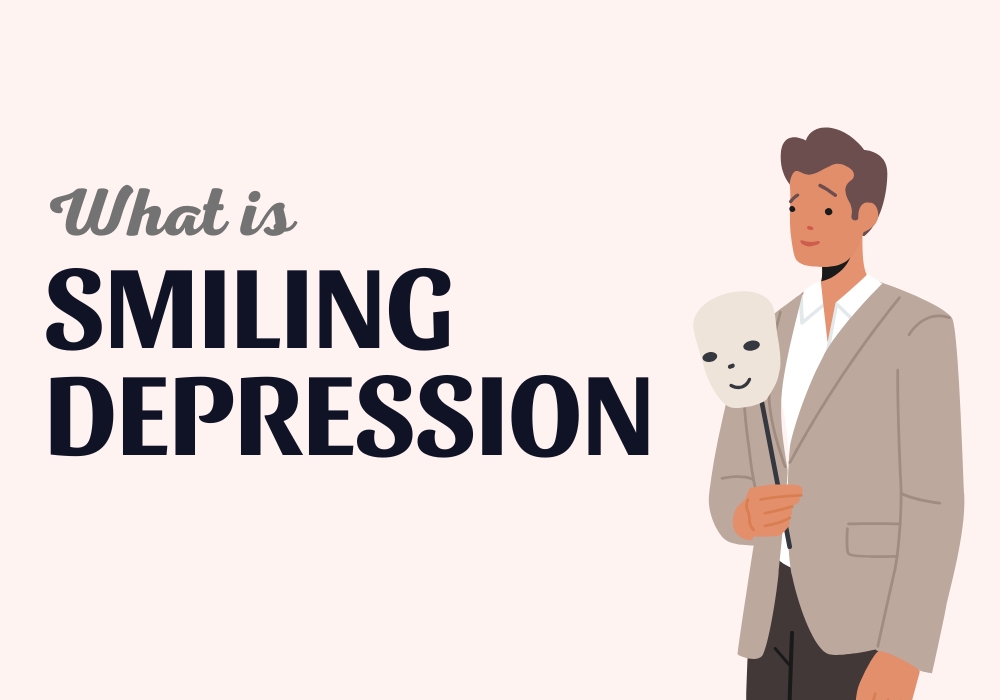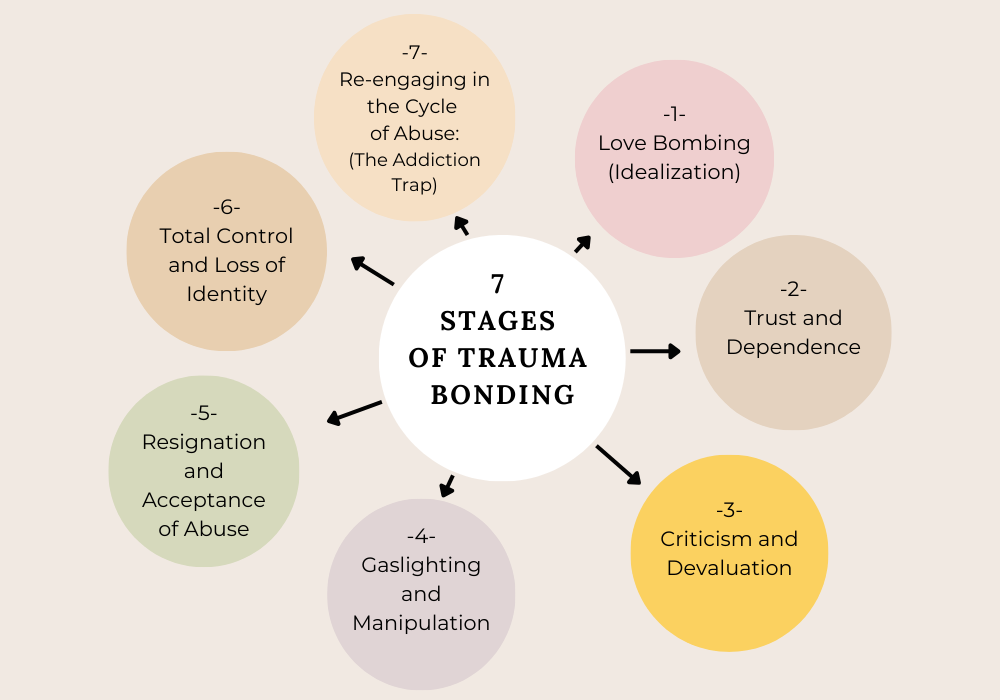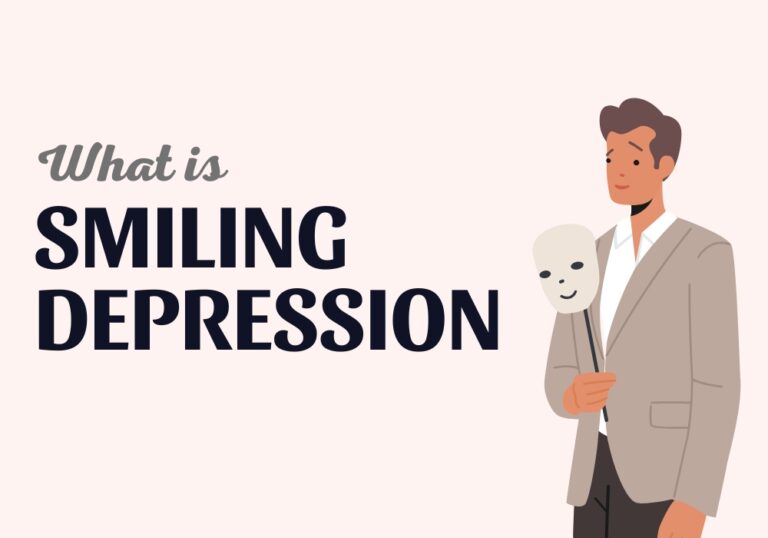What is a People Pleaser?
A people pleaser is someone who prioritizes making others happy, often at the expense of their own well-being. They go out of their way to meet the needs and expectations of those around them, sometimes sacrificing their own desires just to keep the peace. While this behavior may come from a place of kindness and empathy, it can also lead to emotional exhaustion, resentment, and a lack of personal boundaries.
People pleasers are often seen as helpful, agreeable, and caring, but their constant need for approval can make it difficult for them to say no. They may feel guilty when prioritizing themselves and struggle to set boundaries in relationships. Over time, this can take a toll on their mental health, leading to stress, anxiety, and burnout.
So how do you know if you are a people pleaser? And most importantly, how can you break free from this exhaustive cycle?
In this article, we’ll dive into:
- 10 signs that indicate you might be a people pleaser.
- The psychological causes behind this behavior.
- The negative effects it can have on your well-being.
- 11 powerful ways to stop people-pleasing and set healthy boundaries.
Signs You Might Be a People Pleaser:
Here are 10 signs that you may be a people pleaser:
1-You Never Have “You” Time:
You never dedicate any time to yourself because you always remain ready to be at others’ disposal. Even when you do get some moments for yourself, you are quick to make yourself available for any requests.
2-You pretend to agree with everyone:
Being able to listen politely to other people’s opinions even when different from yours is a great social skill. But pretending to agree to be liked and accepted could make you do things you don’t actually believe in.
Related: 13 Tips To Become likable Person Everyone Wants to Know
Related: 23 Signs you have an Endearing Personality
3-You feel responsible for how other people feel:
Acknowledging the impact of one’s behavior on others is advantageous. Nevertheless, thinking that one can bring joy to someone else is difficult. It is each person’s responsibility to be the master of their own emotions.
4-You are apologizing for things that aren’t your fault:
People pleasers often take on the burden of other people’s emotions, feeling responsible for their happiness or distress. If someone is feeling down, you might blame yourself or worry that others see you as the cause. While apologizing when necessary is important, constantly taking the blame for things beyond your control could signal a deeper issue.
5-Not being able to say no:
People pleasers often struggle to say “no” directly and may resort to making excuses to avoid commitments. However, they often end up regretting not having the courage to set boundaries from the start.
Related:Why Is Saying ‘No’ So Important?

6-You need praise to feel good:
Praise and kind words have the power to uplift anyone, but people pleasers are particularly dependent on extrinsic validation. If your sense of self-worth resides solely in what other people think about you, then you will only feel good when complimented by others.
7-Changing your personality depends on who’s around you:
People pleaser often shift their behavior and attitude to conform to the person or group they are with. This can lead to them acting in ways that are foreign to them or engaging in activities they don’t agree with simply to fit in socially. People pleasers frequently do whatever they can to prevent conflict, even if it means transforming into an entirely different person.
Related:21 Simple Tips to Build a Strong Personality
8-You don’t admit when your feelings are hurt:
If you want to build genuine relationships, it’s important to speak up when your feelings are hurt. Suppressing emotions like anger, sadness, embarrassment, or disappointment—even when you’re deeply affected—prevents relationships from reaching a deeper, more authentic level.
Related:10 Practical Tips That Can Help You Find Emotional Healing
Related: 12 Signs Of An Unhealthy Relationship
9-You Feel Guilty Setting Boundaries:
One supposes that others require more help than they do themselves, and they decline to set boundaries to be helpful. It may be difficult to decline requests from others, possibly because they have been criticized for setting boundaries in the past.
10-You Fear Being Labeled “Selfish” :
Feeling nervous about being labeled selfish may actually indicate that you’re prioritizing others’ opinions over your own needs.
Causes of Being a People Pleaser:
A lot of things might cause someone to be a people pleaser, including the following:
1-Poor self-esteem:
People pleasing can be a result of individuals not recognizing their own desires and needs. As a result of having a lack of confidence, people pleasers require outside approval, and they might think that doing things for others will lead to being acknowledged and accepted.
Related:Low Self-Esteem Causes, Signs, & 10 Ways to Cope
Related: 21 Signs of a Truly Confident Person
2-Past experiences:
Experiences that were painful, difficult, or traumatic can also be a factor. For instance, people who have been victims of abuse may find themselves trying to please and appease others to avoid triggering abuse.
Related: 23 Signs of Repressed Childhood Trauma in Adults

3-Anxiety:
People may try to please others due to the fear of rejection, being excluded, or causing offense. For instance, those who suffer from social anxiety may feel the need to do whatever their peers want to be accepted. It is an indirect way to try to manipulate how others view them.
Related: How To Overcome Fear of Rejection ? 12 Effective Steps
Related: 11 Ways to Overcome Social Anxiety
4-Conflict avoidance:
People who are scared of conflict, or believe they must avoid it, may use people pleasing as an approach to avoid disagreements.
5-Insecurity:
Those who experience insecurity may be motivated to please others because they fear they will be rejected or abandoned if they do not. This can lead them to go to extreme lengths to make those around them happy, even if it means sacrificing their own well-being.
6-Culture and socialization:
A person’s cultural background may shape how they perceive their obligations toward others and themselves. Some may believe that being entirely selfless is a desirable trait, or that the needs of the group are more important than the individual.
Effects of Being a People-Pleaser:
People pleasing can be a beneficial part of fostering deep relationships with loved ones, yet it can become a problem if it is being done to gain approval to compensate for low self-esteem. Or if you are willing to sacrifice your own emotional well-being to make the people around you happy.
When you dedicate your entire being to helping others in an attempt to make them content and win their admiration, you may face some of the following consequences.
1-Lack of Authenticity:
Individuals who are keen to please often sacrifice their wants and needs to satisfy the desires of those around them. This can create a feeling of not living authentically and can even lead to the individual not truly understanding themselves.
2-Weaker Relationships:
If you find yourself consistently putting efforts toward fulfilling other people’s expectations, you may begin to feel resentment. While people may be appreciative of your generosity, they may also take it for granted. People may not be aware that they are taking advantage of your generosity. All they recognize is that you are always ready to be of assistance, so they don’t doubt that you will be there for them when needed. What they may not acknowledge is the pressure that you are under and how much you have committed yourself to do.
Healthy, strong relationships are based on equality (give and take). It is necessary to show kindness to those we care about, and they should do the same for us.
You won’t have good relationships if people just like you ’cause you’re nice to them.
3-Lack of self-care:
If you are constantly committing yourself to the satisfaction of other people, you might start neglecting your own. You could end up getting sick or feeling overwhelmed by the pressure of trying to make everyone content.
4-Inability to enjoy yourself:
The pressure generated from always striving to please people can make it difficult to take pleasure in the small things, such as going for coffee or perusing your favorite book…
Taking on a lot of commitments can make it really hard to take a break and relax because of all the stress.
Related:10 Ways To Find Joy In The Little Things
5-Built-up resentment:
It is possible to find oneself storing up anger because one believes that people are exploiting them. This might cause them to make passive-aggressive remarks and display other manifestations of their agitation. Instead of communicating their feelings to others and attempting to improve the situation, they may start to distance themselves.
6-Stress and burnout:
People-pleasing can significantly increase stress levels, especially when individuals take on more than they can handle to satisfy others.
Constantly trying to meet everyone’s demands can lead to exhaustion, anxiety, and even physical health issues. The pressure to keep up may result in overworking, skipping rest, or sacrificing essential self-care, ultimately leading to burnout.
Related: How to Avoid Burnout ?
Related: 8 Ways to Bust Stress in 5 Minutes
7-Anger and Frustration:
The people you help may appreciate your sacrifices, but there’s also a chance they won’t. Over time, they might even take your kindness for granted or unknowingly take advantage of you, never fully realizing the depth of your generosity.
Being nice with ulterior motives can lead to frustration and resentment. Over time, this may result in passive-aggressive behavior, confusing or even unsettling those who don’t understand what’s going on.
While helping others can be fulfilling, doing so out of obligation or reluctance often leads to frustration. This can create a vicious cycle—offering help, feeling upset about being taken advantage of, and then regretting it or feeling sorry for oneself.
Related: 10 Anger Management Strategies To Help You Stay Calm

Tips to Stop People-Pleasing:
1-Learn to set boundaries :
Establishing healthy boundaries is a key component of managing people-pleasing behaviors. The next time someone requests help, or you’re tempted to get involved, give thought to:
- How do you feel about performing this action? Is it something that you are looking forward to, or is it something you would rather avoid?
- Are you able to set aside the time to attend to your own needs, or do you have to use up your limited free time or go without completing a task that needs to be done?
- Think about your mental state after helping. Will it bring you joy or bitterness?
2-Set Goals and Priorities :
When deciding how to spend your time, it is important to consider who you are trying to help, what your goals are, and how these goals align with your priorities. Knowing your priorities can help you decide if you can devote yourself to a task.
If something is draining your energy or taking up too much of your time, act to rectify the problem. As you practice implementing these boundaries and declining activities that you don’t have a genuine interest in, you will realize that you have more time to dedicate to the things that matter to you.
Related: How To Set Goals and Achieve Them?
3-Show kindness when you mean it :
Practicing kindness is a positive habit to have, but it is not done to earn positive comments. Kindness should be done out of a sincere desire to benefit the other person, rather than any personal benefit.
Before offering aid, assess your intentions and how the action will make you feel. Does the opportunity to help another bring you joy? Or will you be displeased if the gesture isn’t repaid?
4-Relationships Require to Give and Take:
To have a strong and healthy relationship, there needs to be some kind of mutual exchange. If one person is always providing and the other is always taking, this tends to mean that the former is forfeiting what they need for the latter to possess what they want.
Even if it is satisfying to make others content, it is vital to remember that they should be making an effort to give something back too.
Related: 18 Signs of Manipulation in a Relationship
Related:15 Signs You Are In a Relationship With a Narcissist
5-Time blocking:
Need to keep your schedule in check? Set aside dedicated time each day for no new requests or plans. You can do this manually or use a calendar app to automatically decline incoming invites.
-> Stay organized with an all-in-one digital and printable planner!
6-Avoid Making Excuses:
It is essential to be direct when declining an offer, and prevent citing other duties or providing explanations for your inability to participate. As soon as you commence elucidating why you can’t do something, you are giving others a way to question your excuse. Or you may be giving them the opportunity to modify their request to ensure that you can still do what they are asking.
It is recommended to use a decisive manner when rejecting something and to abstain from giving excessive information about the reason. Remember that “no” is a complete sentence.
7-Setting time limits:
Whenever one agrees to do something, it is important to set a time limit or deadline instead of waiting for another to set the schedule.
8-Identify Toxic Traits :
When you say “no”, when you make a decision, and it is not accepted or respected, that suggests that more boundaries need to be established in the relationship, as they’ve probably been taking advantage of you.
Related: Top 10 Signs of a Toxic Friend (and How to End It Right)
Related: How to Deal With Toxic People?
9-Have a healthy relationship with yourself :
Practice self-care and self-love activities to become more aware of your own needs, inclinations, and aversions, which can help you set boundaries.
Related: 9 Types of Self Care Everyone Needs to Practice

10-Think before committing: :
When someone requests a favor, it is wise to pause and consider before responding in the affirmative. Quickly agreeing can leave one feeling obligated and overwhelmed, but taking time to consider the request can allow assessing it and determining if it is something desired. Before reaching a decision, ask yourself :
- What is the approximate duration of this task?
- Should I really take on this task? Do I have the necessary amount of time to achieve it?
- How anxious will I be if I choose to accept?
- Providing yourself a moment will assist you in making an exact determination whether you have the inclination and time to take it on.
11-Work On Your Inner Self :
It is beneficial to delve inward and identify the source of these people-pleasing tendencies and heal whatever injury may have caused them. It could be old trauma or a negative experience with someone dear to you. In any case, it is important to be comfortable with yourself and recognize all of your needs.
Conclusion:
You do not need to abandon kindness and consideration — these are admirable characteristics that help build strong and lasting relationships. However, it is important to reflect on your reasons. Are you acting with genuine care or motivated by fear of rejection or the desire for approval?
Doing good to others should always be in your own terms. True goodness does not seek recognition or reward — simply stems from a sincere desire to make a positive difference.









